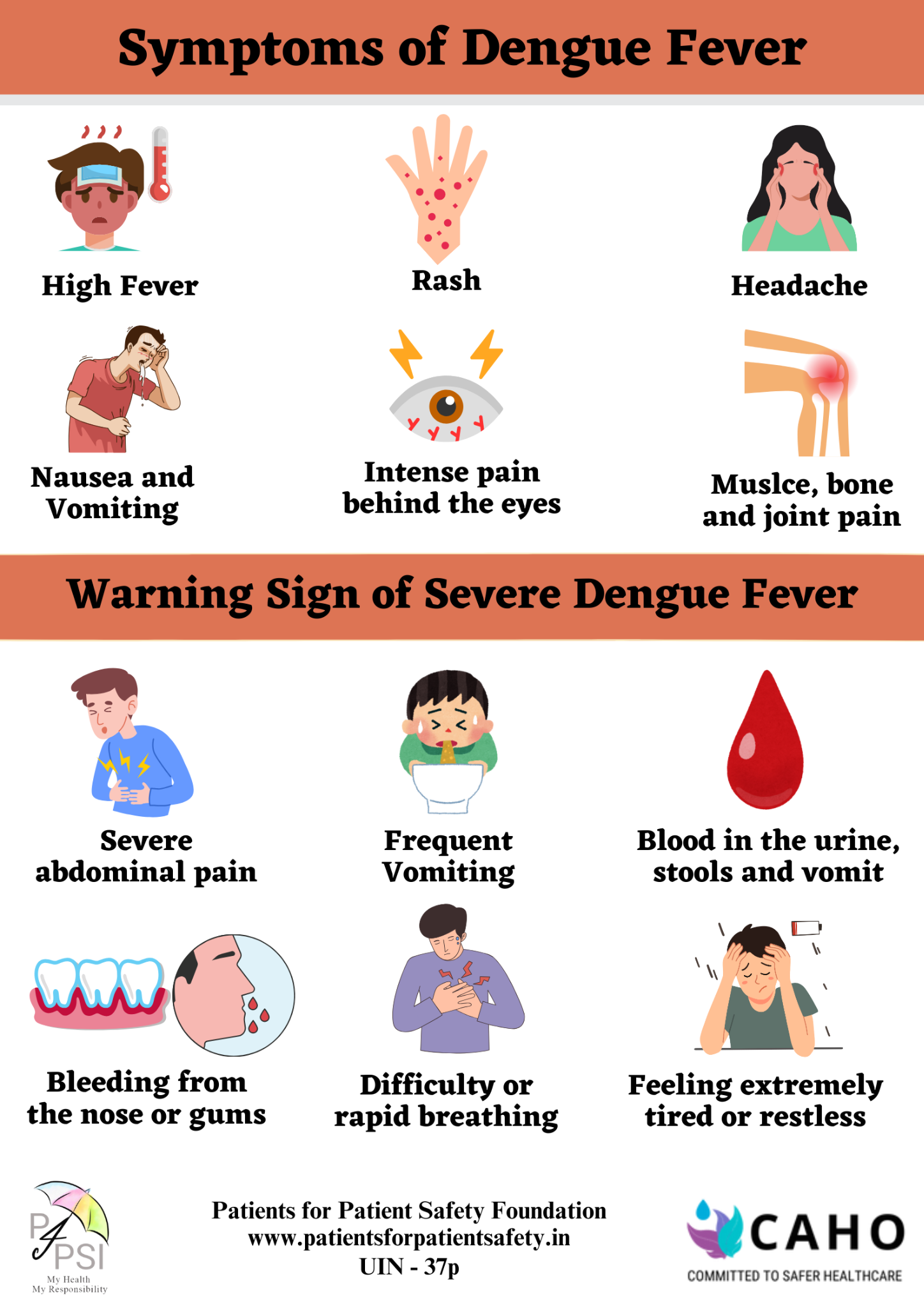
Combating Dengue: Understanding, Prevention and Treatment
What is it:
Dengue fever is a disease transmitted by mosquitoes found in tropical and subtropical regions worldwide. It spreads through the bite of the Aedes aegypti mosquito. Symptoms typically appear 5-6 days after being bitten by an infected mosquito. An individual can be infected with dengue multiple times in their life. Dengue is not contagious from person to person except when passed from a pregnant person to their child. Dengue fever has symptoms similar to severe flu including high fever, intense headaches, muscle and joint pain and debilitating fatigue. Dengue can however rapidly progress to more severe manifestations. In its most severe cases of dengue, the infected individual faces low platelets. If the disease is not promptly treated, it can sometimes become dangerous and even fatal.
Symptoms and Warning Signs of severe Dengue Fever:

Rapid reduction of platelets during Dengue:
Platelets are small blood cells produced in the bone marrow. They are important in the human body because platelets stop bleeding by forming clots and they also fight infections by releasing germ-fighting substances and working with the immune system. Normally, healthy individuals have platelet counts between 150,000 to 400,000. In severe cases, they can fall below 20,000, raising the risk of bleeding and haemorrhage and making it harder to combat infections.
How to Diagnose Dengue Fever:
Diagnosing dengue fever involves a combination of clinical assessment and very specific laboratory tests. Your doctor may prescribe some of the lab tests indicated below:
- Clinical assessment: Doctors will evaluate the patient's symptoms, medical history, recent travel history and physical examination to look for signs of dengue fever.
- Laboratory tests: Complete blood count test, NS1 antigen test, Dengue IgM/IgG antibody test and Reverse transcription-polymerase chain reaction (RT-PCR).
Early diagnosis is crucial for effective management and to prevent complications:
Treatment for Normal Dengue Fever:
As there is no specific antiviral medication for the dengue virus, treatment for normal dengue fever focuses primarily on the following supportive care strategies:
- Medications prescribed by a doctor, usually OTC medicines like paracetamol to control fever and relieve pain. Avoid non-steroidal anti-inflammatory drugs (NSAIDs) like aspirin and ibuprofen as they can increase the risk of bleeding.
- Proper rest for body recovery.
- Stay hydrated with fluids like coconut water, ORS (Oral Rehydration Solution) and fresh juices.
- Monitor vital signs (temperature, blood pressure, pulse) and regularly complete blood counts to detect complications.
Several home remedies
can help manage symptoms and support recovery, but they are not substitutes for medical treatment. Always consult a healthcare professional for proper diagnosis and treatment of dengue fever.
Treatment for Severe Dengue Fever:
In severe dengue cases, Patients need to be hospitalised for close monitoring of their conditions. Treatment depends on the severity of symptoms and may include:
- IV fluids or intravenous fluids administration to maintain blood pressure and prevent shock.
- Platelet transfusions if the platelet count is critically low.
- Blood transfusions in cases of severe bleeding.
- Oxygen therapy for patients with respiratory distress or low oxygen levels.
Risk factors for Dengue:
The primary risk factor is exposure to Aedes aegypti mosquitoes, which prefer to breed in clean and stagnant water found in environments such as uncovered water storage containers, flower pots or discarded items that collect rainwater.
Living or travelling in disease-prone areas without protection, being outdoors during peak mosquito times (early morning and late afternoon) and not using repellents. Children, the elderly and those with weakened immune systems are particularly vulnerable.
Prevention:
Preventing Dengue requires reducing or eradicating mosquito breeding sites and implementing personal protective measures to avoid mosquito bites with the following steps:
- Remove stagnant water inside and surrounding the home.
- Sleep under a properly tucked mosquito net.
- Use insect repellent, and wear long-sleeved clothing.
- Avoid outdoor activities during peak mosquito-biting times (early morning and late afternoon).
- Install screens on doors and windows and use indoor insecticide sprays or coils.
- Encourage community mosquito control efforts like fogging and spraying.
Timely diagnosis and treatment, prevention through mosquito control and personal protective measures are key to reducing its impact. By increasing awareness and taking proactive steps, we can reduce the burden of dengue fever on public health as well.
 Back
Back